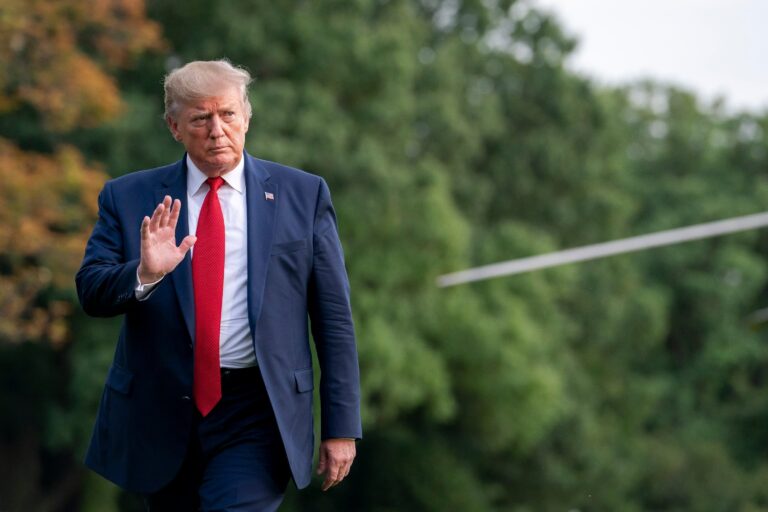President Donald Trump has announced a new wave of tariffs on key imports. Starting October 1, branded and patented medicines entering the United States will face a 100 percent duty unless companies operate factories in America.
The plan also introduces a 25 percent tariff on heavy-duty trucks and a 50 percent levy on kitchen and bathroom cabinets. Trump presented the measures on Thursday, calling them necessary to protect US manufacturers.
On Truth Social, he said a “flood” of foreign products was harming American producers. He insisted the tariffs would shield domestic companies and preserve jobs.
The announcement comes despite warnings from US businesses that new duties could disrupt supply chains and increase costs.
Pharmaceutical industry responds
Neil Shearing, chief economist at Capital Economics, said the tariffs on drugs were less severe than they seemed. He highlighted exemptions for generic medicines and companies building production plants in the US.
He added that many major pharmaceutical companies already operate American facilities or plan to expand soon.
Ireland’s Trade Minister Simon Harris referred to the August 21 US-EU agreement. He said the deal capped tariffs on European pharmaceutical exports at 15 percent.
United Nations data show Britain exported more than six billion dollars’ worth of medicines to the US last year.
A June trade deal between Washington and London also promised “preferential treatment outcomes on pharmaceuticals.”
A UK government spokesperson described the announcement as concerning and said Britain would continue close engagement with US officials.
UK drugmakers expand in the US
GlaxoSmithKline already operates facilities in the United States. Last week, it pledged 30 billion dollars in US research and manufacturing over five years.
AstraZeneca also maintains American plants. In July, it announced plans to invest 50 billion dollars in the US by 2030.
William Bain, head of trade policy at the British Chambers of Commerce, said these investments should shield UK companies from new tariffs. He noted the scale of advanced manufacturing projects already underway.
Several pharmaceutical firms recently withdrew planned investments from Britain, citing challenging conditions.
Jane Sydenham, investment director at Rathbones, said Trump’s policies played a key role. She argued that uncertainty in US trade policy outweighed concerns about Britain’s economic growth.
Tariffs hit trucks and furniture
Trump confirmed a 25 percent duty on heavy-duty trucks. He said the measure would support US manufacturers such as Peterbilt and Mack Trucks.
He also announced tariffs on kitchen and bathroom cabinets and other furniture imports. He argued that high import levels were undermining domestic producers.
From next week, upholstered furniture will face a 30 percent tariff.
Swedish retailer Ikea said the tariffs make operations more difficult and that it is closely monitoring the situation.
Tariffs remain central to Trump’s economic agenda
Tariffs continue to define Trump’s second-term trade policy. In August, sweeping duties on imports from over 90 countries came into effect. Washington said the measures aim to strengthen US manufacturing and create jobs.
Earlier measures had targeted steel, copper, aluminium, cars and vehicle parts.
The US Chamber of Commerce warned against new duties this year. It noted that most truck parts come from Mexico, Canada, Germany, Finland and Japan.
Mexico and Canada supplied more than half of US imports of medium and heavy truck parts last year. The chamber said domestic production was unrealistic and would raise costs.
Experts warn of higher prices
Deborah Elms, trade analyst at the Hinrich Foundation, said the tariffs favour US producers but are “terrible” for consumers. She predicted significant price increases.
She explained that the new measures cover more products and impose higher rates than Trump’s earlier reciprocal tariffs, which aimed to address trade imbalances.
Elms added that industry-specific tariffs could serve as a fallback plan. They could secure revenue if broader global tariffs are challenged in court.


